What Type of OCD Do I Have? Understanding OCD Symptoms and How to Get the Right Help in Arizona
You might be asking yourself questions like:
"Why do I get stuck on certain thoughts?"
"Why do I feel the urge to check or fix things even when I know they're fine?"
"Is this anxiety—or is it OCD?"
If you've found yourself wondering what type of OCD you might have, you're not alone. Obsessive-Compulsive Disorder (OCD) shows up in more ways than most people realize. It’s not just about handwashing or organizing - though it can be. Many individuals silently struggle with unwanted thoughts, urges, or mental rituals they feel ashamed to talk about.
The good news? Understanding your unique symptoms is the first step toward healing. And effective, evidence-based OCD treatment in Arizona is available to help you take your life back.
What Is OCD, Really?
OCD is a mental health condition that involves two main components:
Obsessions: unwanted, intrusive thoughts, images, or urges
Compulsions: behaviors or mental acts performed to relieve the distress caused by those obsessions
People with OCD often know their thoughts aren’t logical—but they still feel intense anxiety and pressure to act on them.
Common Types of OCD (And Why You May Not Recognize Yours)
OCD isn’t one-size-fits-all. While everyone with OCD experiences obsessions and compulsions, the themes and content vary widely.
Here are some common types of OCD people often struggle with—sometimes without even knowing it’s OCD:
1. Contamination OCD
Fears of germs, illness, chemicals, or environmental toxins.
Compulsions may include: excessive washing, avoiding public places, or disinfecting.
2. Checking OCD
Fear of harm or mistakes.
Compulsions may include: repeatedly checking locks, appliances, or making sure no one is hurt.
3. Harm OCD
Intrusive thoughts of accidentally or intentionally hurting others or yourself.
Compulsions: avoiding certain items, seeking reassurance, mental reviewing.
4. Relationship OCD (ROCD)
Doubt and overanalysis about your relationship, partner, or your feelings.
Compulsions: constantly seeking reassurance, comparing relationships, ruminating.
5. Sexual or Violent Intrusive Thoughts
Unwanted thoughts involving taboo or disturbing themes.
This is incredibly common and deeply distressing, but still treatable.
Compulsions: avoidance, mental rituals, seeking reassurance.
6. Scrupulosity (Religious or Moral OCD)
Obsessions related to being immoral, sinful, or unethical.
Compulsions: confessing, excessive praying, researching rules or moral standards.
7. Perfectionism or "Just Right" OCD
A need for things to feel “right,” symmetrical, or in a certain order.
Compulsions: arranging, repeating actions, avoiding tasks until they feel perfect.
“But My OCD Doesn’t Fit into One Box…”
That’s okay. OCD can shift themes over time, and many people experience more than one subtype.
What matters most is not what you call it, but how it affects your life. If intrusive thoughts and compulsive behaviors are interfering with your ability to function or feel safe in your own mind, it's worth seeking support.
How Do I Know If It’s Really OCD?
A qualified OCD therapist can help you get clarity.
Many people go years being misdiagnosed with generalized anxiety, depression, or even personality disorders before finally learning: This is OCD.
At BrainBody OCD Counseling, our team specializes in accurate assessment and treatment of OCD in Scottsdale and throughout Arizona via telehealth. We use gold-standard approaches like:
Exposure and Response Prevention (ERP)
Inference-Based CBT (I-CBT)
Acceptance and Commitment Therapy (ACT)
Mindfulness and neuroscience-informed therapy
We help you learn how to relate differently to your thoughts - without letting them control your life.
How Is OCD Treated?
OCD treatment is not about making intrusive thoughts go away—it’s about building resilience, tolerance, and freedom from the anxiety that fuels compulsions.
Exposure and Response Prevention (ERP) is the most evidence-based treatment for OCD. It helps you gradually face fears without performing rituals, rewiring your brain’s anxiety response.
Other integrative approaches like ACT and I-CBT can be especially helpful when OCD is complex, long-term, or co-occurring with trauma, depression, or chronic anxiety.
Why Choose BrainBody OCD Counseling for OCD Therapy in AZ?
At BrainBody Wellness Counseling, we specialize in helping people with all types of OCD reclaim their lives. Whether your OCD is loud and obvious or hidden and internal, we’re here to support you—without judgment, shame, or pressure.
We offer:
OCD therapy in Scottsdale, AZ
Online OCD treatment across Arizona
Personalized, neuroscience-informed, whole-person care
In-network support for BCBS and superbill options for others
The “Treat My OCD” Program: A Guided, Compassionate Path to Recovery
At BrainBody OCD Counseling, our Treat My OCD program offers a clear, supportive path for managing OCD - whether you're newly diagnosed or have been struggling for years.
We offer a free informative session to help you understand how OCD treatment works and introduce key skills for managing intrusive thoughts and compulsions. You’ll also receive a guided workbook to help you start tracking symptoms and practicing helpful strategies right away.
Our program includes:
A personalized treatment plan using ERP, I-CBT, and ACT
Weekly sessions (in-person in Scottsdale or virtual across Arizona)
Optional parent or partner support
In-network with BCBS
➡️ Learn more or sign up for your free session:
